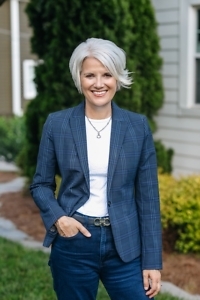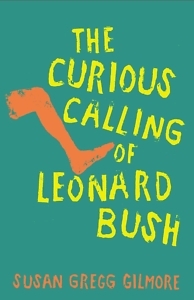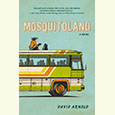No Science to Explain It
A young boy’s misfortune unexpectedly brings healing to members of his rural community
In The Curious Calling of Leonard Bush, author Susan Gregg Gilmore sets the story of 12-year-old Leonard in rural Sweetwater, Tennessee, 1961. Leonard had his infected left leg amputated after stepping on a piece of glass while wading in the nearby Big Sugar River, and the novel opens as the leg is given the “proper goodbye” of a funeral at Leonard’s request — for reasons even he doesn’t fully understand. “There was simply a need, something chafing at his soul.”

After the funeral, held at the family’s hilltop cemetery and well attended by friends and neighbors, he and his parents, Emmett and June, struggle to make sense of a loss so sudden and overwhelming that they can scarcely comprehend it. It’s the burial not only of a leg, but of his parents’ dreams for Leonard and — in many ways — for themselves.
Not long after the funeral, one of Leonard’s friends comes to him, asking for help in burying his own unique talisman of shame and sorrow. At first resistant, Leonard eventually agrees to help him, holding a brief ceremony at the cemetery complete with the Bible verse used at his leg funeral (“He shall not delight in the strength of the horse, nor take pleasure in the legs of a man”) and his best friend Azalea’s a capella rendition of “On the Wings of a Snow White Dove.” The bereaved friend leaves feeling better, and word soon spreads of Leonard’s special gift.
Others begin to come to him then, looking for absolution or something like it, offering their pain to him in the form of a motel key, a necklace, a movie ticket, a newspaper:
Mr. Coyne sat back on his heels. “Could it be?” he asked, stretching his arms open wide. “Could it truly be that the awful weight pressing down on my heart for so long has been lifted? Just like that?” He stood, puffed up his chest, and took a deep breath. As he exhaled, his smile grew wider. He lifted his face toward the sun. He scratched his head. “There’s no reason for this to work. No science to explain it.”
Leonard can’t explain it either, and although he worries that people are putting too much faith in an ordinary boy, he likes to think he’s helping those who seek him out.
 In contrast, June Bush, a fearful and superstitious woman who can’t reconcile herself to Leonard’s physical disability, is nearly inconsolable, balancing equal parts regret and rage against her Christian duty to patiently bear this latest burden: “She had tried to move forward like the doctor advised. Focus on the time ahead. But every morning she woke moored to the past, desperate to change one second of the day that had led to their tragedy.” Her judgmental pastor feels threatened by Leonard’s newfound celebrity and is little help to her, but she continues to look for spiritual direction, even as she compulsively disinfects her kitchen and, by extension perhaps, her life.
In contrast, June Bush, a fearful and superstitious woman who can’t reconcile herself to Leonard’s physical disability, is nearly inconsolable, balancing equal parts regret and rage against her Christian duty to patiently bear this latest burden: “She had tried to move forward like the doctor advised. Focus on the time ahead. But every morning she woke moored to the past, desperate to change one second of the day that had led to their tragedy.” Her judgmental pastor feels threatened by Leonard’s newfound celebrity and is little help to her, but she continues to look for spiritual direction, even as she compulsively disinfects her kitchen and, by extension perhaps, her life.
Emmett Bush, a cattle farmer, is a gentle, practical man who already carries his own silent burden of guilt and pain stemming from a previous tragedy: the death of his little sister when he was a boy. All he has left of her is a tiny shoe, which he carries with him and touches for solace when life is too hard to bear.
Azalea could use some of that solace. Her mother, Rose, is the town prostitute, and Azalea is forced to serve as surrogate mother to her baby brother much of the time. Missing school and trying to put food on the table are problems enough, but sometimes the men her mother brings home are less than kind, and Azalea doesn’t like the way they look at her. When a crisis erupts in Azalea’s family, the consequences for Leonard and his parents are profound.
Eventually, many wounds of the past — whether delivered by others or self-inflicted — are laid to rest in surprising ways. In The Curious Calling of Leonard Bush, Susan Gregg Gilmore has meticulously crafted a compassionate story about a community of flawed people burdened by fear and shame and the 12-year-old boy who tries his best to deliver them from the weight of the world.

Tina Chambers has worked as a technical editor at an engineering firm and as an editorial assistant at Peachtree Publishers, where she worked on books by Erskine Caldwell, Will Campbell, and Ferrol Sams, to name a few. She lives in Chattanooga.


